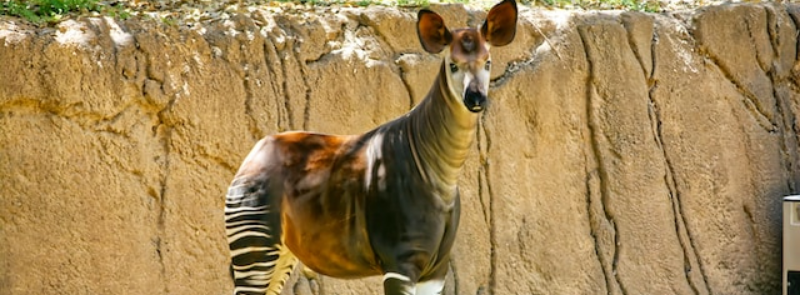
When It Occurs
Every October 18th
Timeline
Days to Come (2)
# Hashtags
#WorldOkapiDay #ZebraAndGiraffe
Celebrated on October 18th, World Okapi Day draws attention to the unique creature known as the okapi. Picture a blend of a zebra and a giraffe, and you'll have a good idea. Exclusive to the rainforests of Congo, this solitary herbivore faces threats to its existence from illegal gold mining, poaching for bushmeat, and the clearing of forests for agricultural purposes.
The primary goal of World Okapi Day is to raise awareness about the imperative to preserve forest ecosystems, as the loss of habitat directly contributes to the endangerment of wildlife. Destruction of habitats hampers the ability to meet the basic needs of animals, including providing shelter, food, and water.
Overview
- Species: The okapi (Okapia johnstoni) is a relative of the giraffe, with a similar body structure but distinct differences in appearance. It has a striking coat with zebra-like stripes on its legs and a reddish-brown body.
- Habitat: Okapis are endemic to the dense rainforests of the DRC, particularly the Ituri Forest. They are elusive and solitary animals, making them difficult to study in the wild.
- Conservation Status: The okapi is listed as Endangered by the International Union for Conservation of Nature (IUCN) due to habitat loss, poaching, and political instability in its native region.
History and Significance
- Establishment: World Okapi Day was established to highlight the importance of okapi conservation and to celebrate the unique biodiversity of the Congo Basin.
- Awareness: The day aims to increase global awareness of the okapi, its ecological role, and the threats it faces. It also promotes the efforts of conservation organizations working to protect the okapi and its habitat.
Activities and Observances
- Educational Campaigns: Zoos, wildlife organizations, and conservation groups conduct educational programs to teach the public about okapis. These may include talks, workshops, and interactive exhibits.
- Social Media Campaigns: Online campaigns using hashtags like #WorldOkapiDay help spread awareness and engage a broader audience in the conservation conversation.
- Fundraising Events: Many organizations hold fundraising events to support okapi conservation projects. These can include charity runs, auctions, and crowdfunding initiatives.
- Partnerships: Collaboration between international conservation organizations and local communities in the DRC is crucial for effective okapi conservation. World Okapi Day highlights these partnerships and their achievements.
Conservation Efforts
- Okapi Conservation Project (OCP): Established in 1987, the OCP focuses on protecting the okapi and its habitat through community-based conservation, education, and research.
- Anti-Poaching Initiatives: Efforts to reduce poaching include training and deploying ranger teams to patrol protected areas and enforce wildlife laws.
- Habitat Protection: Conservation projects work to preserve the okapi's natural habitat by supporting sustainable land use practices and mitigating deforestation.
- Research and Monitoring: Ongoing research on okapi ecology and behavior is essential for developing effective conservation strategies. Monitoring populations and health helps track the success of conservation efforts.
Threats to Okapi
- Habitat Loss: Deforestation due to logging, agriculture, and mining is a significant threat to okapi habitats.
- Poaching: Although hunting okapis is illegal, they are still targeted for their skins and meat. Poaching also indirectly affects okapis by reducing the populations of other species they coexist with.
- Political Instability: Civil unrest and armed conflicts in the DRC pose challenges to conservation efforts, making it difficult to protect okapi habitats and enforce anti-poaching laws.
Importance of Okapi Conservation
- Biodiversity: The okapi is an important part of the Congo Basin's biodiversity. Protecting it helps preserve the entire ecosystem.
- Indicator Species: As a species sensitive to environmental changes, the okapi serves as an indicator of the health of its forest habitat.
- Cultural Significance: The okapi is a national symbol of the DRC and holds cultural significance for local communities.
How to Get Involved
- Educate Yourself and Others: Learn more about okapis and share information with friends and family to raise awareness.
- Support Conservation Organizations: Donate to or volunteer with organizations working to protect okapis and their habitats.
- Advocate for Policy Change: Support policies and initiatives that promote conservation and sustainable development in the DRC.
- Participate in World Okapi Day Events: Join local or virtual events to celebrate and support okapi conservation.
World Okapi Day plays a vital role in bringing global attention to the conservation needs of this unique species and promoting efforts to ensure its survival for future generations.


